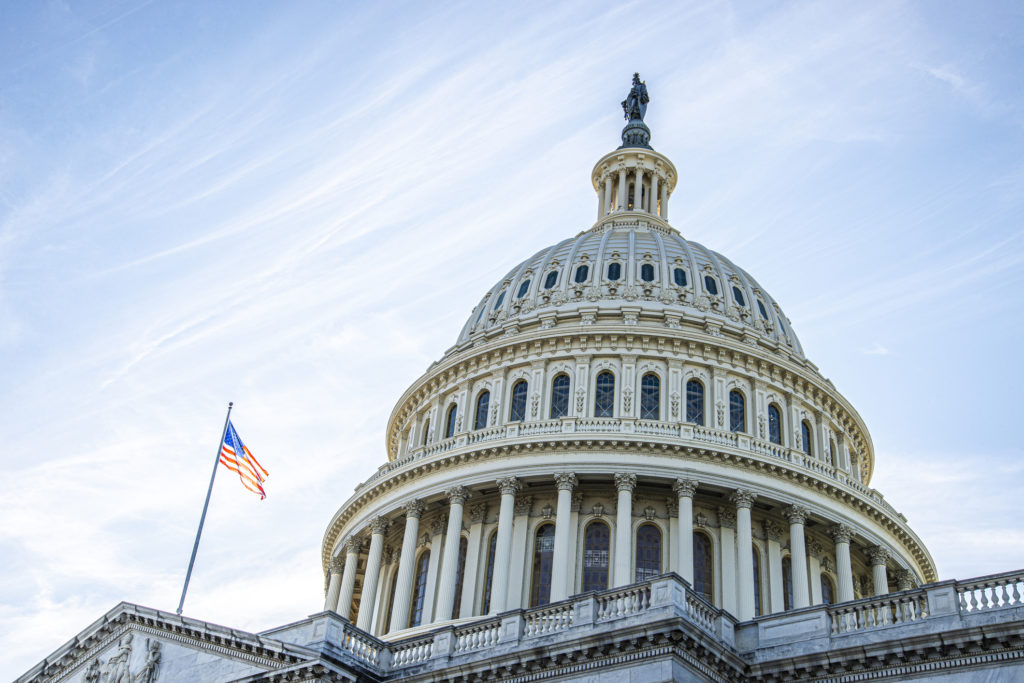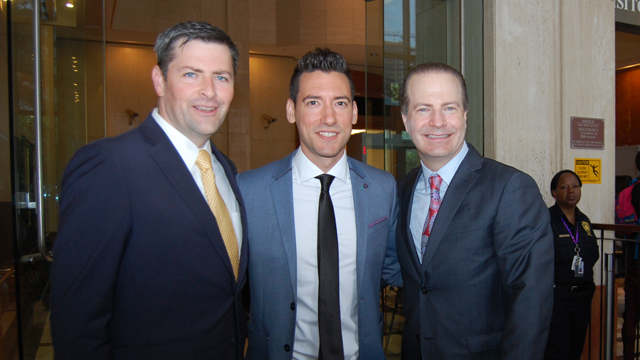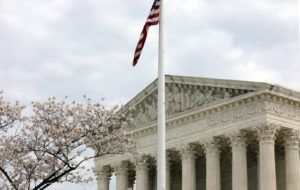
WASHINGTON (BP) – Republican efforts in the U.S. Senate to insert a long-standing protection against federal funding of abortion in a $1.9 trillion COVID-19 relief bill fell short to the dismay of foes of government support for the lethal procedure.
The Senate rejected a motion March 6 that would have applied the Hyde Amendment to some health-care funding in the American Rescue Plan promoted by President Biden. Its approval would have prohibited those funds in the legislation from paying for abortions. The roll call for the amendment by Sen. James Lankford, R-Okla., was 52-47 in favor, but 60 votes were required under the rule for its passage.
Senators approved the entire package in a party-line, 50-49 vote later the same day. Though the House of Representatives passed the proposal Feb. 27, it will have to act on the Senate version before it can go to Biden for his signature.
The Democratic-controlled chambers have now passed separate measures that defy the standard established in the last Congress. With a Republican-controlled Senate and President Trump in the White House, five COVID-19 relief bills that included safeguards against federal funding of abortion gained approval beginning in March 2020. The newly passed measures also disregard the Hyde Amendment, which has banned funding of abortions in federal health programs since 1976.
Chelsea Sobolik, a policy director for the Southern Baptist Ethics & Religious Liberty Commission, said of the Senate’s failure to block abortion funding, “Ending this pandemic and economic hardship is a unifying effort that should not be corrupted by the abortion lobby’s agenda.
“It is morally wrong,” she said in written comments, that the Senate-passed bill “seeks to make federal money available to the abortion industry. American taxpayer dollars should never fund abortion, something that would be especially egregious during a health crisis.”
The ERLC calls on the House “to take this opportunity to add Hyde Amendment protections and other pro-life conscience riders for the good of all Americans,” Sobolik said.
Carol Tobias, president of the National Right to Life Committee (NRLC), charged the Democrats who opposed the pro-life amendment with betraying “the vast majority of Americans who oppose taxpayer funding of abortions. Pro-abortion Democrats are most interested in funding abortion and abortion providers who want abortion available at any time during pregnancy, anywhere, for any reason, and paid for by taxpayers.”
Kristen Day, executive director of Democrats for Life of America, thanked the three members of the Democratic Party who voted for Lankford’s amendment and urged Biden and the House leadership to restore the pro-life protections. “This is NOT unifying,” she tweeted.
“The Biden Administration must step back from radical change to longstanding abortion policy and look toward further reducing abortion in [America],” Day wrote on Twitter. “States that have funding for abortion have higher rates.”
The Democrats who voted for the Lankford amendment were Sens. Robert Casey of Pennsylvania, Tim Kaine of Virginia and Joe Manchin of West Virginia. All the GOP members supported it.
It appears unlikely enough Democrats will change their votes in the House to restore Hyde Amendment-type protections. The House passed its version of the relief package by a 219-212 vote, with only two Democrats joining the Republicans in opposition.
Public opinion polls have consistently found a majority of Americans disagree with government funding of abortion. A January survey by Marist Poll for The Knights of Columbus showed 58 percent of American adults “oppose” or “strongly oppose” taxpayer funding of abortion. The poll showed 31 percent of Democrats and 34 percent of those who identified themselves as pro-choice were opposed.
NRLC reported after House passage the bill could result in an estimated $414 billion or more in federal funds being applied to elective abortions or health insurance that covers elective abortions.
The Susan B. Anthony List said of the legislation after it gained House approval without pro-life protections that it includes billions of dollars for community health centers, $750 million for international health activities, a $50 million increase for the Title X family planning program and federal subsidies for health insurance coverage under the Consolidated Omnibus Budget Reconciliation Act (COBRA).
Pro-life advocates apparently gained a victory, however, when Democrats removed a provision from the House-passed bill that would have enabled Planned Parenthood, the country’s No. 1 abortion provider, to qualify for loans through the Paycheck Protection Program (PPP), which is designed during the pandemic to help employee retention by small businesses, including churches and nonprofit organizations. At least 37 Planned Parenthood affiliates applied for and received more than $80 million in early rounds of PPP loans last year despite being ineligible under program requirements.
Sen. Rand Paul, R-Ky., said he told the Senate parliamentarian the proposal violated a chamber rule because it benefited only Planned Parenthood. Before the parliamentarian ruled, Democrats stripped the provision from the legislation, he said.
Amendments were also introduced to apply the Hyde Amendment to other health-care measures, but only Lankford’s proposal received a vote. A Senate rule prevented a comprehensive ban on abortion funding in the entire bill.
Republicans were short a member in votes on the relief package because Sen. Dan Sullivan of Alaska was home for a family funeral. Even had Sullivan been present, Vice President Kamala Harris would have been able to break tie votes by virtue of her role as the Senate’s presiding officer.
The Hyde Amendment, which must be approved each year, prohibits Medicaid funding of abortion except in the cases of pregnancy by rape or incest and when the mother’s life is endangered. The amendment became the general label for such bans in federal health programs. The measure has saved the lives of more than 2.4 million unborn children, according to an estimate last year by Michael New, associate scholar of the pro-life Charlotte Lozier Institute.
The Senate-passed measure includes a rebate of as much as $1,400 per person but lowers the maximum amount of income at which an individual would quality. The Senate version, however, does not include the House-approved increase in the federal minimum wage to $15 by 2025.






















